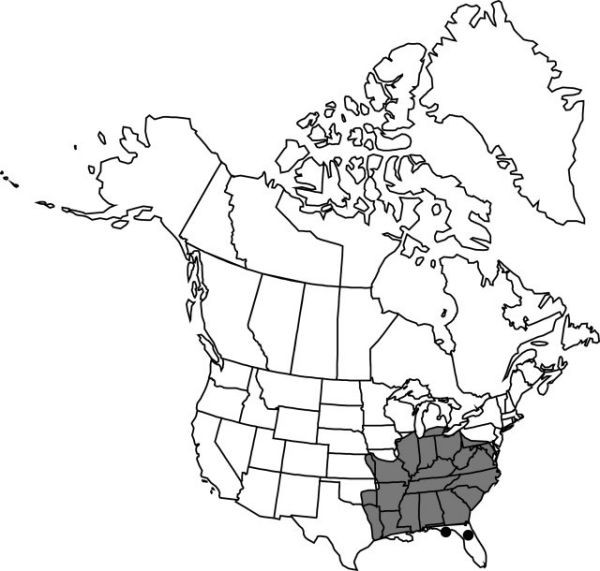Difference between revisions of "Spiranthes ovalis var. erostellata"
Brittonia 35: 123, figs. 1 [right], 2, 3. 1983.
Endemic
Treatment appears in FNA Volume 26. Treatment on page 538.
FNA>Volume Importer |
imported>Volume Importer |
||
| (5 intermediate revisions by 2 users not shown) | |||
| Line 6: | Line 6: | ||
|place=35: 123, figs. 1 [right], 2, 3. 1983 | |place=35: 123, figs. 1 [right], 2, 3. 1983 | ||
|year=1983 | |year=1983 | ||
| + | }} | ||
| + | |special_status={{Treatment/ID/Special_status | ||
| + | |code=E | ||
| + | |label=Endemic | ||
}} | }} | ||
|basionyms= | |basionyms= | ||
| Line 32: | Line 36: | ||
-->{{#Taxon: | -->{{#Taxon: | ||
name=Spiranthes ovalis var. erostellata | name=Spiranthes ovalis var. erostellata | ||
| − | |||
|authority=Catling | |authority=Catling | ||
|rank=variety | |rank=variety | ||
| Line 46: | Line 49: | ||
|publication title=Brittonia | |publication title=Brittonia | ||
|publication year=1983 | |publication year=1983 | ||
| − | |special status= | + | |special status=Endemic |
| − | |source xml=https:// | + | |source xml=https://bitbucket.org/aafc-mbb/fna-data-curation/src/2e0870ddd59836b60bcf96646a41e87ea5a5943a/coarse_grained_fna_xml/V26/V26_1096.xml |
|subfamily=Orchidaceae subfam. Orchidoideae | |subfamily=Orchidaceae subfam. Orchidoideae | ||
|tribe=Orchidaceae tribe Cranichideae | |tribe=Orchidaceae tribe Cranichideae | ||
Latest revision as of 21:11, 5 November 2020
Plants allogamous. Flowers: sepals 3.5–5 mm; rostellum and viscidium absent. 2n = 30.
Phenology: Flowering late Aug–Oct.
Habitat: Moist, rich woodlands, thickets, old fields, 2d-growth woodlands, wooded hillsides
Elevation: 0–900 m
Distribution

Ont., Ala., Ark., Fla., Ga., Ill., Ind., Iowa, Kans., Ky., La., Md., Mich., Miss., Mo., Ohio, Okla., N.C., Pa., S.C., Tenn., Tex., Va., W.Va.
Discussion
In Spiranthes ovalis var. ovalis, all plants have fully open flowers, and the ovaries swell progressively. In most plants of S. ovalis var. erostellata, the flowers are never quite fully open, and the ovaries are simultaneously swollen on each flower. Because the varieties are largely allopatric, identification can be aided by locality.
Selected References
None.
Lower Taxa
None.